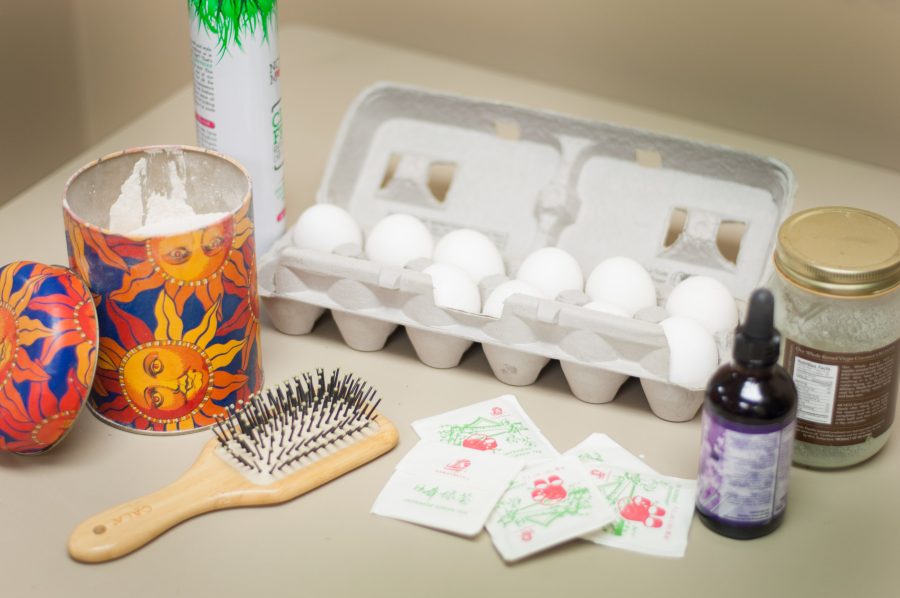Most people believe shampooing their hair at least several times a week is necessary to maintain a luscious, healthy mane.
But a select few believe the very shampoos designed to protect hair end up damaging it.
In pursuit of healthy hair, a movement defying the culturally acceptable practice of shampooing has emerged.
The ‘No Shampoo’ movement advocates reducing or forgoing shampoo to instead use natural products such as vinegar and baking soda or dry shampoos.
Supporters of the ‘No ’Poo’ movement claim the chemicals in shampoo strip hair of the essential oils that keep it in good shape.
Advocates say that to compensate, sebaceous (oil) glands produce an excess amount of oil, stimulating a cycle of perpetually greasy hair.
‘No ’Poo’ advocates also say using softer alternatives like baking soda or apple cider vinegar are more beneficial for hair.
However, some critics like Dr. Marc Chetta, professor in the departmet of biology, disagree with ‘no ‘poo’ supporters’ claims.
“If [‘No Shampoo’ advocates] are going to advertise using vinegar, which is acidic, that’s not less toxic to hair than soapy shampoo,” Chetta said. “To use baking soda, which is sodium bicarbonate, which is basic, that’s not less toxic to hair either. I just think it’s a fad.”
He also said scrubbing the scalp with shampoo helps eliminate dead skin cells.
Emily Green, a senior accounting major, said she first heard about the ‘No ’Poo’ method on the news.
She said she did try reducing shampoo use to every two or three days but found there was no noticeable difference.
Green said she thinks people who avoid shampoo for a while tend to have shinier hair than those who use shampoo. But she also said she thinks the process of getting to that point is difficult.
“I think [‘no ’poo’ is] a little bit of an overreaction to the chemicals,” Green said. “People can easily find shampoos that aren’t harmful to your hair. I think it was more of a big hype, a little trendy.”
Paul Meyer, a freshman cinema production major, said he has never heard about the ‘No ’Poo’ movement.
Meyer said he thinks it is unhealthy for people to go without shampoo.
“It all depends on the reason why they’re doing it,” Meyer said. “But if it’s just personal, I don’t have a problem with it, as long as they’re clean.”
Meyer said he would not try going ‘no ’poo’ because he has allergies and he already knows what shampoos work best for him.
Drew Bond, a junior English major, strongly objected to forgoing shampoo altogether.
“I think daily shampooing is a little excessive, but I think shampoo has its place,” he said.
Bond said he might consider going ‘no ’poo’ depending on the alternative being used.
“The only other beings that don’t shampoo, that I know of, are animals,” Bond said.
In contrast, Rebekah Church, a sophomore criminal justice major, has a stronger opinion of the ‘No ’Poo’ movement.
She said shampooing every day is bad, but not shampooing at all is worse.
“My perspective would be use those [natural products], but I would suggest not using that every single day,” Church said. “I use coconut oil, and it actually works pretty well. It brings out my natural curls more than shampoo ever did. I do recommend it.”
Habin Hwang, a freshman criminal justice major from South Korea, said although she has not heard about the ‘No ’Poo’ movement, she thinks shampoo alternatives like aerosol dry shampoos are harmful to the environment.
Hwang said this negative effect outweighs the benefits.
She said although she would not try shampoo alternatives again, she currently does put vinegar in her shampoo.






















































